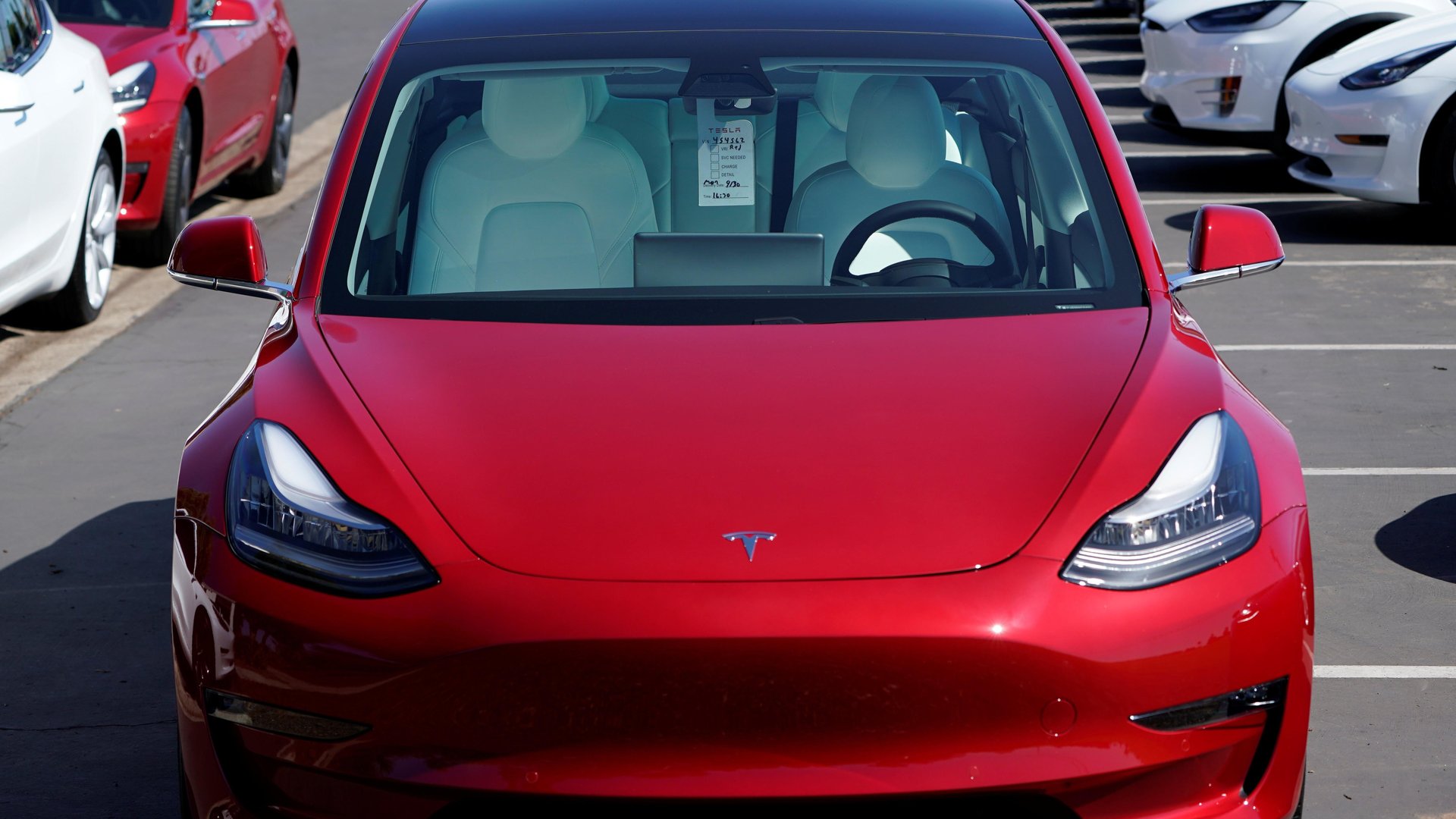Is demand for Teslas lagging? Its year-end discounts suggest problems ahead.
The carmaker's stock is down nearly 10% on news that Tesla customers won't pay full price

Tesla doubled the discount on its two most popular models, the carmaker’s website shows, alarming investors because the electric carmaker has almost always managed to sell its vehicles at full price.
Suggested Reading
Tesla’s stock has fallen nearly 10% today (Dec. 22), and is trading at its lowest levels in two years. The company has been hurt by macroeconomic trends, like rising interest rates, and issues specific to Tesla, like the constant antics of its CEO Elon Musk, who’s been accused of not paying enough attention to the company while it faces a wide range of challenges.
Related Content
Tesla’s website currently reads: “Take delivery of a new Model 3 or Model Y between December 21 and 31, 2022 for a $7,500 credit and 10,000 miles of free Supercharging.”
The increased discount—twice what it offered earlier this month—suggests Tesla may also be contending with sagging demand. The EV automaker rarely discounts its cars, and Musk has boasted about not needing to advertise or pay for endorsements.
The discount also mirrors a $7,500 tax credit on the purchase of new EVs that will take effect in 2023, suggesting that Tesla is trying to lure consumers to buy now, rather than wait for the tax credit. But just weeks earlier, Tesla was only offering a $3,750 incentive.
Has the demand for Tesla faltered?
For years, Musk has said that Tesla does not have a demand problem, but a production problem. But, during the three months that ended in September, the carmaker’s production exceeded deliveries by more than 22,000 vehicles.
Meanwhile, in October, Tesla had slashed prices of its vehicle in China, which is not something a company does when demand is outstripping supply. The cuts come as local manufacturers have been beefing up their lineups.
There is growing uncertainty around Tesla as consumers start to pull back on spending and as the company faces growing competition from both newer EV startups and established automakers.
The boost in discounts follows Musk’s latest sale of Telsa stock, in which he unloaded another 22 million shares, worth $3.6 billion. That comes after selling 19.5 million shares in November, to fund the closing on his purchase of Twitter. The stock sales, along with Musk’s antics at Twitter, are increasingly worrying Tesla shareholders and analysts. Now it’s showing up in the stock price.